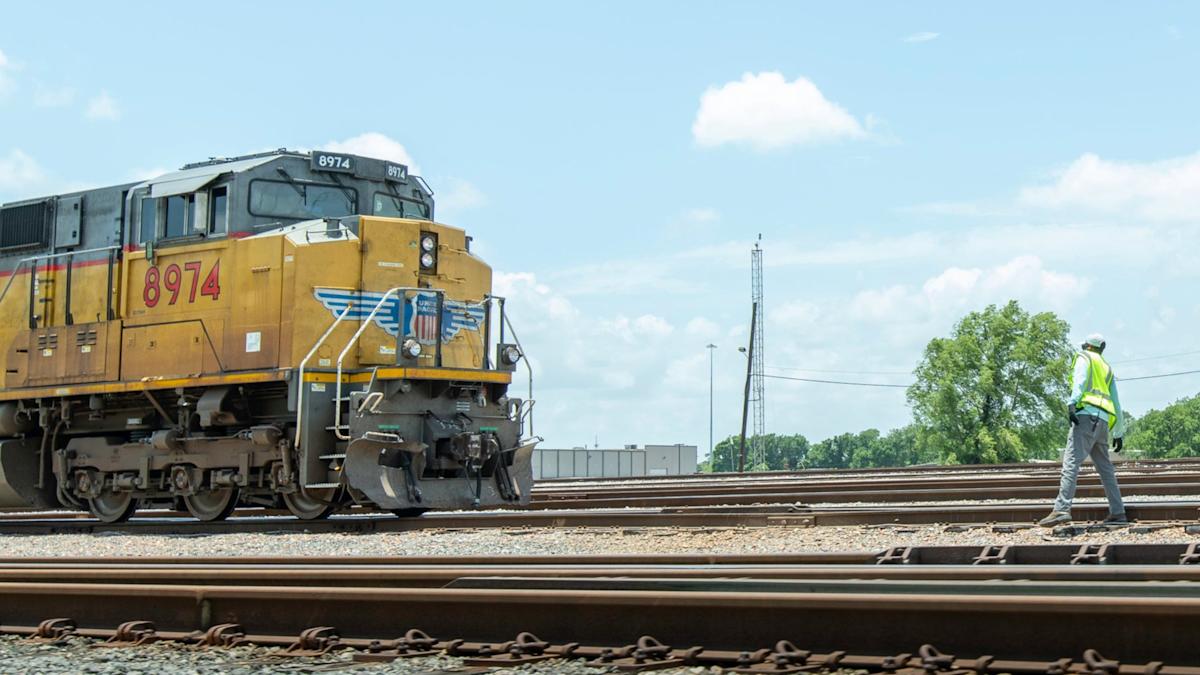Lifetime job is great “until you’re stuck in it”
Union Pacific this week traded job protections for the backing by its largest union of its proposed takeover of Norfolk Southern.
Join the leaders shaping freight’s future at
F3: Future of Freight Festival, Oct 21-22.
Network with the industry’s best and discover what’s next.
The largest western railroad (NYSE: UNP) said that every member of the SMART-TD (Sheet Metal, Air, Rail and Transportation Workers—Transportation Division), union holding a job at the time of the merger will have career-long positions if and when the blockbuster rail deal is approved by federal authorities.
The tie-up would create a transcontinental freight rail colossus with more than 50,000 employees operating 52,000 miles of track in 43 states. About 80% of those workers are unionized.
The current networks are far-flung, unmerged: You could work for Norfolk Southern (NYSE: NSC) and live in Des Moines, Iowa, more than 900 miles from company headquarters in Atlanta.
That could be problematic as far as job guarantees are concerned, since a railroad typically assigns an employee just about anywhere on its system, particularly if that person, such as SMART-TD train crew and yardmasters, is lower down on the seniority list.
Some observers said the union employment agreement might not be all it seems.
Absent the details, “[T]he headlines have read like the Burlington Northern agreements signed before 1970 to get labor’s support for the Great Northern/Northern Pacific/Chicago, Burlington & Quincy/Spokane, Portland & Seattle merger into BN,” wrote consultant Karl Silverberg, in a LinkedIn post.
“The problem was that merger-related traffic shifts, along with normal traffic fluctuation, led to differing labor demand for different segments — some higher, some lower. And thus, labor costs did not reach the prospective [merger] savings,” said Silverberg, who worked almost three decades at BN and then BNSF.
“The actions BN later took to reduce and restructure the personnel costs became infamous in the industry,” he wrote. “Bottom line, while there is now a model for labor peace with this merger, the consolidation will probably be more painful for many as the changes work around the guarantees.”
Union Pacific in a recent proxy filing estimates $1 billion in annual cost savings from the merger, and projected $2.75 billion total savings including revenue growth and efficiency improvements.
“[The] BN “Orange Book” protection was too often a ticket to misery by those that got stuck not being able to leave their union job/position because they could not risk losing the protection,” wrote consultant Jim Titsworth, a principal at Summit Rail Advisors who worked 29 years at BNSF, also on LinkedIn. “For many others, it was an invitation to the “rubber room” where they had to report to work but were required to sit in a room with nothing to do. Lifetime protection also tended to stop people’s drive to improve, which ruined many good people.



Leave a Comment
Your email address will not be published. Required fields are marked *